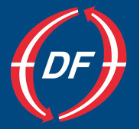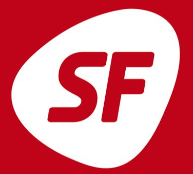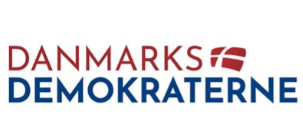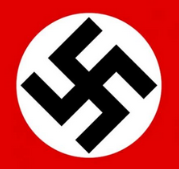








Danish Political Parties' Positions on Support to Ukraine
Denmark's parliament (Folketinget) has shown broad cross-party consensus on supporting Ukraine since Russia's full-scale invasion in February 2022, particularly through the establishment and expansion of the Ukraine Fund (Ukrainefonden). This fund, totaling over 60 billion DKK (€8 billion) in military commitments from 2023–2028, has been agreed upon by a majority of parties. Decisions are typically made via political agreements, reflecting strong unity. However, some parties, particularly far-right and far-left, express reservations or opposition, especially on military aid.
Parties Supporting Aid (Broad Majority – Typically Vote Yes)
These parties consistently back the Ukraine Fund and advocate for sustained or increased support, emphasizing solidarity, NATO commitments, and Ukraine's right to self-defense.
| Party (English / Danish) | Seats (2022 Election) | Key Stance |
|---|---|---|
| Social Democrats (S) | 50 | Leads agreements; views Ukraine's fight as "our fight"; supports all military/financial packages. |
| Venstre (V) – Liberals | 23 | Full support; pushes for long-term commitments (e.g., 10-year guarantees). |
| Socialist People's Party (SF) | 15 | Strongly pro-aid; focuses on humanitarian and reconstruction alongside military. |
| Danish People's Party (DF) | 5 (post-2023 gains) | Supported early funds but shifted in 2025 to call for scaling back military aid, territorial concessions for peace, and no NATO membership for Ukraine during war. |
| Danish Democrats (Æ) | 6 | Backs all major packages; emphasizes signaling strength to Russia. |
| Conservative People's Party (C) | 10 | Consistent yes; prioritizes NATO-aligned military support. |
| Liberal Alliance (LA) | 9 | Supports expansions; highlights economic/business aid for reconstruction. |
| Social Liberals (B) – Radikale Venstre | 7 | Enthusiastic backer; stresses civil society and enterprise involvement. |
| Moderates (M) | 16 | Full alignment; commits to aid "as long as necessary." |
| New Right (NB) | 6 | Joined early agreements; supports military donations. |
Parties with Reservations or Partial Opposition (Often Abstain or Vote Against Military Aid)
These parties support humanitarian/financial aid but criticize or vote against weapons/military escalations, citing risks of prolonged conflict or Danish defense depletion.
| Party (English / Danish) | Seats (2022 Election) | Key Stance |
|---|---|---|
| Red-Green Alliance (Ø) – Enhedslisten | 9 | Internal split in 2022 (narrowly supported initial weapons); now often abstains on military votes, favoring diplomacy and humanitarian focus. |
| The Alternative (Alt) | 6 | Supports non-military aid; has abstained or opposed weapons packages, arguing for de-escalation. |
Parties Opposed to Aid (Vote Against)
Far-right and green parties oppose military aid, prioritizing Danish security, neutrality, or anti-militarism.
| Party (English / Danish) | Seats (2022 Election) | Key Stance |
|---|---|---|
| Free Greens (FG) – Frie Grønne | 6 | Consistently against weapons/military support; views it as escalation; supports only humanitarian aid. |
| Denmark Democrats (Nye Borgerlige – NB) | 4 | Opposes most packages; calls for ending "endless" support to focus on Danish borders and defense. |
Notes: Over 80% of seats back aid, enabling near-unanimous passage. DF's 2025 shift reflects growing skepticism. Far-left/right fringes (~25 seats) lack influence on outcomes. Aid votes often occur in closed-door Foreign Policy Committee agreements. Check ft.dk for real-time records.
Danish Government Aid to Ukraine (2022–October 2025)
Denmark has been a top donor to Ukraine since February 2022, providing over €9.35 billion in bilateral aid, making it the second-largest donor relative to GDP (2.34–2.89%). Aid includes military (weapons/equipment), financial, and humanitarian support via the Danish Ukraine Fund and EU mechanisms.
Total Aid Breakdown
| Aid Type | Total Amount (€ billion) | Key Notes |
|---|---|---|
| Military (Weapons & Equipment) | 9.0 | Includes 25+ packages; e.g., Harpoon missiles, F-16 support, artillery shells, air defense systems, and €3 billion for Ukrainian defense industry (2025–2027). €4.4 billion spent in 2024. |
| Financial (Grants/Loans for Reconstruction & Economy) | 0.7 | Macro-financial aid via EU; e.g., €190 million for Mykolaiv reconstruction. Part of €867 million civilian commitments. |
| Humanitarian | 0.15–0.2 | Emergency aid for displaced persons, food, medical care; e.g., DKK 1.2 billion (€161 million) in 2023, DKK 405 million (€54 million) in 2025. |
| Grand Total | 9.35+ | Excludes multi-year pledges like €2.1 billion Transition Programme (2025–2028). |
Number of Aid Packages
Denmark announced at least 25 military aid packages, including:
- 25th Package (April 2025): €898 million for air defense, artillery, Air Force support (2025–2027).
- May 2025: €555 million for artillery shells (Czech initiative) and F-16 equipment.
- EU Windfall Profits (May 2025): €830 million for Ukrainian-made weapons.
- Nordic Package (August 2025): Denmark’s share of €460 million for U.S.-sourced equipment.
Humanitarian/financial aid is bundled into 3–5 annual allocations. Figures are pledges; actual disbursements may vary. Source: Danish Ministry of Defence, Kiel Institute.
Konklusion
Alle socialistiske partier plus de mindre begavede, er alle enige om at styrke de nazistiske styrker i Ukraine. Det vil altså sige at de alle støtter menneskehandel, sexslaveri, organhandel, organtyveri, narkoproduktion, narkohandel og biovåbenproduktion. & åbenbart helst ser at Ukraine fortsat skal være turistland for kriminelle socialister med trang til sygligheder. Kun 4 partier er i mod støtten til dette vandvid. Nye Borgerlige står ikke på listen, da de har fået ny ledelse med meget mere morale. Dansk Folkeparti står stadig på listen, selvom de har ændret holdning, men da de historisk set ikke er til at stole på, og kun bruger dette til at vinde stemmer på. Dvs. at kun tre ud af de tolv siddende partier i Folketinget reelt set er i mod støtten.
Conclusion: All socialist parties, along with the less gifted ones, are in agreement about strengthening the Nazi forces in Ukraine. This means they all support human trafficking, sex slavery, organ trafficking, organ theft, drug production, drug trafficking, and bioweapon production. Apparently, they would prefer Ukraine to continue being a tourist destination for criminal socialists with a penchant for depravity. Only 4 parties are against this support. The New Right is not on the list, as they have new leadership with much higher morals. The Danish People's Party remains on the list, despite their changed stance, but since they historically cannot be trusted and only use this to win votes, it means that only three out of the twelve sitting parties in the Folketing are genuinely opposed to the support.

